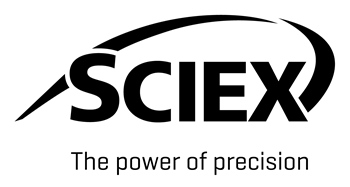Accurate mass spectrometry has quickly become a central tool in the characterization and identification of novel psychoactive substances (NPS) in toxicology casework. This can range from the identification and characterization of emerging drugs, ranging from supplies of recreational drugs to toxicology specimens found in postmortem investigations.
Mass spectrometry forensic lab settings
Gas chromatography-mass spectrometry (GC-MS) is routinely used in a laboratory setting for the characterization of drug powders. Liquid chromatography-mass spectrometry (LC-MS) has taken precedence in forensic toxicology applications, however, while high-resolution mass spectrometry (HRMS) is widely considered to be the first line of defense in identifying NPS.
Pioneering research labs like the Center for Forensic Science Research and Education (CFSRE) leverage LC-QTOF MS (quadrupole time-of-flight mass spectrometry) for drug screening. The lab has developed comprehensive databases boasting over 1,200 targets, using these to facilitate accurate drug confirmations and quantitations via liquid chromatography triple quadrupole tandem mass spectrometry (LC triple quad MS).
The CFSRE’s NPS Discovery program uses a non-targeted approach for identifying novel substances, utilizing liquid-liquid extractions and data-independent acquisition methods such as SWATH acquisition.
This approach allows the lab’s team to collect extensive data from each sample, irrespective of the level of prior knowledge of the drugs involved.
The lab has successfully leveraged this process to identify synthetic opioids in recreational drug supplies and new synthetic cannabinoids in prisons.
Data analysis techniques in NPS discovery
The capacity to retrospectively analyze data is key to successful NPS discovery. Gathering precursor and fragment ion data allows the lab to revisit samples to identify new substances, whether this is months or even years later.
Powerful SCIEX software tools such as PeakView, MasterView, and SCIEX OS, coupled with bioinformatic tools like Metabolite Pilot, have been central to this process. The lab has also been able to develop comprehensive library databases with wide-ranging information. These sophisticated databases enable the accurate tracking of product ions, affording users additional confidence in the data being analyzed.
One noteworthy feature of the NPS Discovery program is its open-access approach. Reports, scope recommendations, drug monographs, public alerts, and drug-checking reports are all freely available on the program’s website, providing a valuable resource for labs looking to extend their NPS screening capabilities or looking for information on current trends in NPS-related deaths and clinical cases.
Conclusion
The NPS Discovery program’s suite of open-access resources has significantly impacted the forensic toxicology field. Mass spectrometry has been key to developing these resources and to the accurate characterization and identification of novel psychoactive substances (NPS) in an array of forensic toxicology settings.
About SCIEX
SCIEX mission is to deliver solutions for the precision detection and quantitation of molecules, empowering their customers to protect and advance the wellness and safety of all.
SCIEX has led the field of mass spectrometry for 50 years. From the moment we launched the first ever commercially successful triple quad in 1981, they have developed groundbreaking technologies and solutions that influence life-changing research and outcomes.
Today, as part of the Danaher family of global life science and technology innovators, they continue to pioneer robust solutions in mass spectrometry and capillary electrophoresis. But they don’t just develop products. It is what they do together with their customers that sets them apart. That’s why thousands of life science experts around the world choose SCIEX to get the answers they can trust to better inform critical decisions. Decisions that positively impact lives.
They proudly stand behind our tagline: The Power of Precision.
Sponsored Content Policy: News-Medical.net publishes articles and related content that may be derived from sources where we have existing commercial relationships, provided such content adds value to the core editorial ethos of News-Medical.Net which is to educate and inform site visitors interested in medical research, science, medical devices and treatments.